The digital window offers a view to an intriguing world, yet we might find ourselves opening it alarmingly often. Last week’s edit on the scrolling addiction of our era, was merely an introduction on the subject, hoping to get more collective answers through your observations as these were documented on the survey that was running all week. The results were not surprising, they were, though, worrisome. As it seems, most of you, myself included, are already spending disproportionally long time online. The question is, do we like indulging in zombie scrolling? Do we need to get lost in the mindless reality of a continually growing scrolling addiction, and if so, why?
Besides the findings of the survey and my opinion on the matter, I researched further the web for more proof and consequently solutions. As it turns out, there are various reasons that make us crave all things online. First of all, digital content is designed to be addictive. Much of this addiction is owned to the interactivity of the users with the posts. According to a recent research, this uncontrollable consumption depends on the number of media a person has already viewed, the similarity of the media they’ve viewed, and the manner in which they viewed the media. Feel free to check Harvard Business Review for more here.
Furthermore, it truly is chemically addictive, same as other, more hardcore addictions: for one, social media changes the brain. As explained on Psychology Today, it can trigger a dopamine hit, which ultimately is unable to be filled otherwise. Gradually, it can engender chronic distraction, wreaking havoc on our peace, our self-control, our priorities. It can take that initial positive attribute of connection and communication, and break it down into isolation and perfectionism in relationships. This might sound too scientific and obscene, but is it really? How far are we from that absurdly painted image? Qualitative interpersonal relationships suffer enough already; even though the web seems to connect more of us, it doesn’t necessarily connect us more.
To put the problem in more thorough perspective, science already examines the issue on a syndrome level. To be exact, the Zombie Scrolling Syndrome is a term coined by the McAfee security company in 2016 to describe the effects of cell phone addiction. It’s defined as “mindless scrolling out of habit, with no real destination or benefit.” The most worrisome indication of the condition is the gradual lack of appetite for real life interactions, an issue commonly seen among gamers. This article by Newport Institute offers valuable feedback on not only identifying, but also containing our craving for pixels.
Back to our own mini universe, let’s have a look at the results of the survey. Sorry, fellas, it doesn’t look that good. That is, if you care about leading a balanced life. Most of you state that you are already somewhat lost down the rabbit hole, losing days out of your lives. Let’s have a look at your preferences and how much time they absorb:
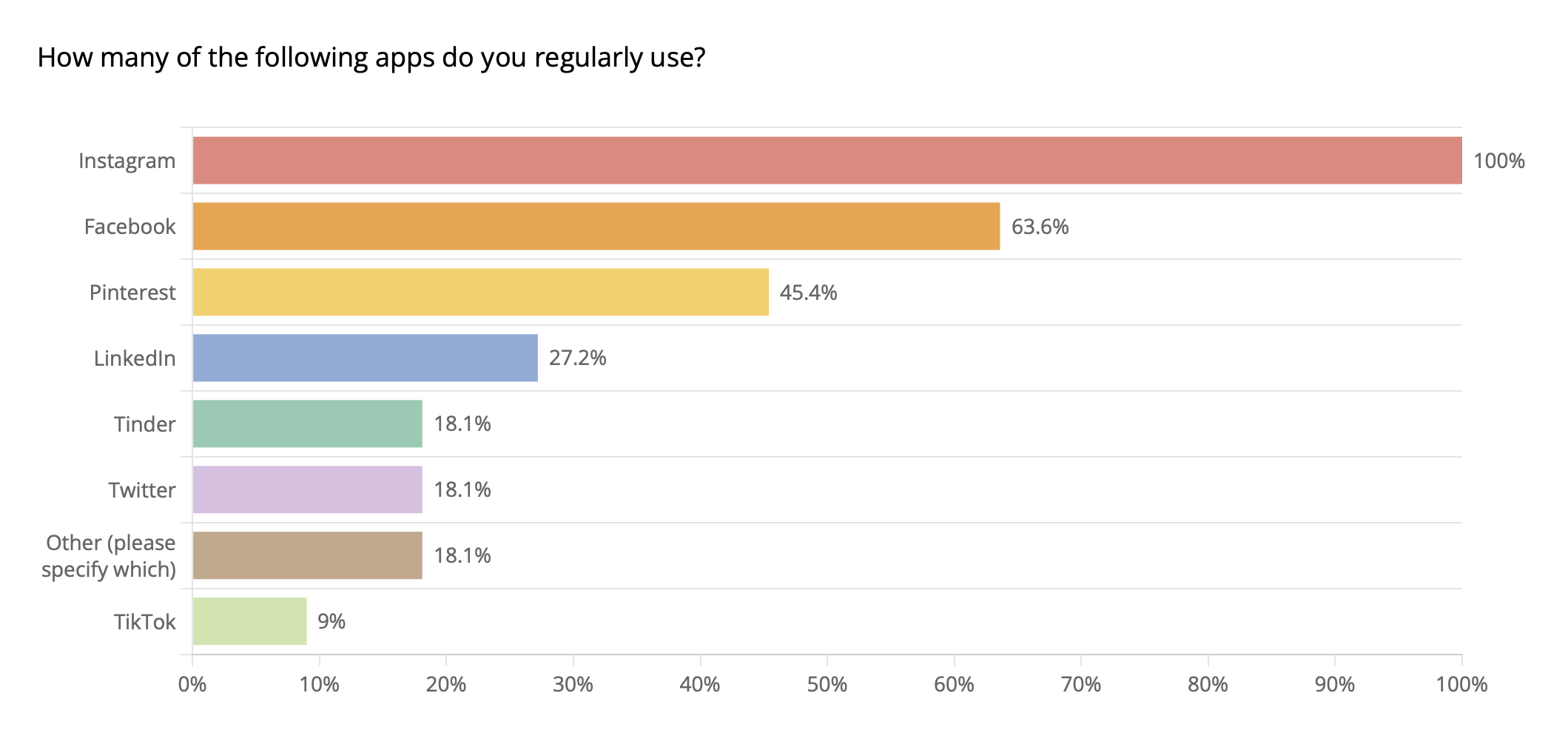
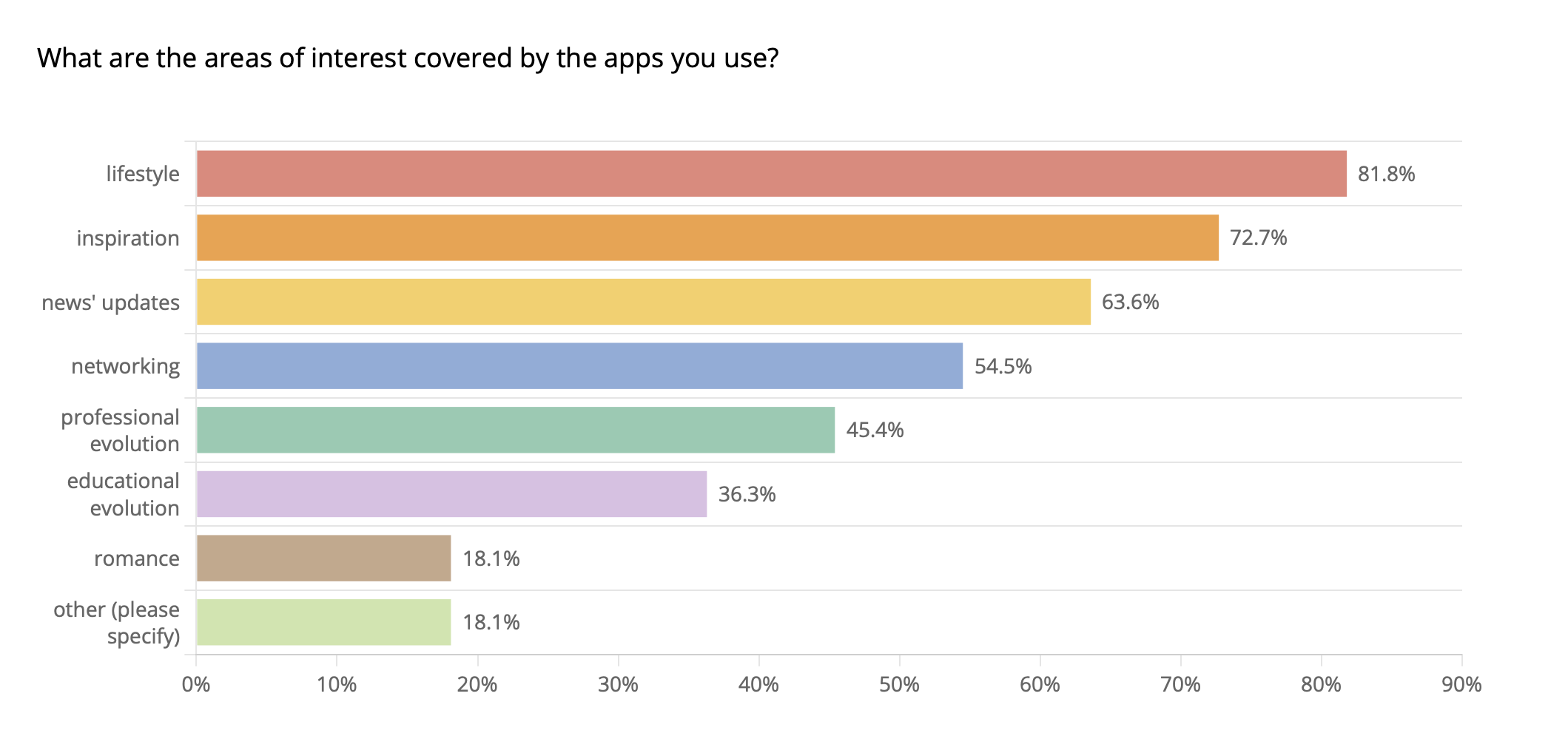

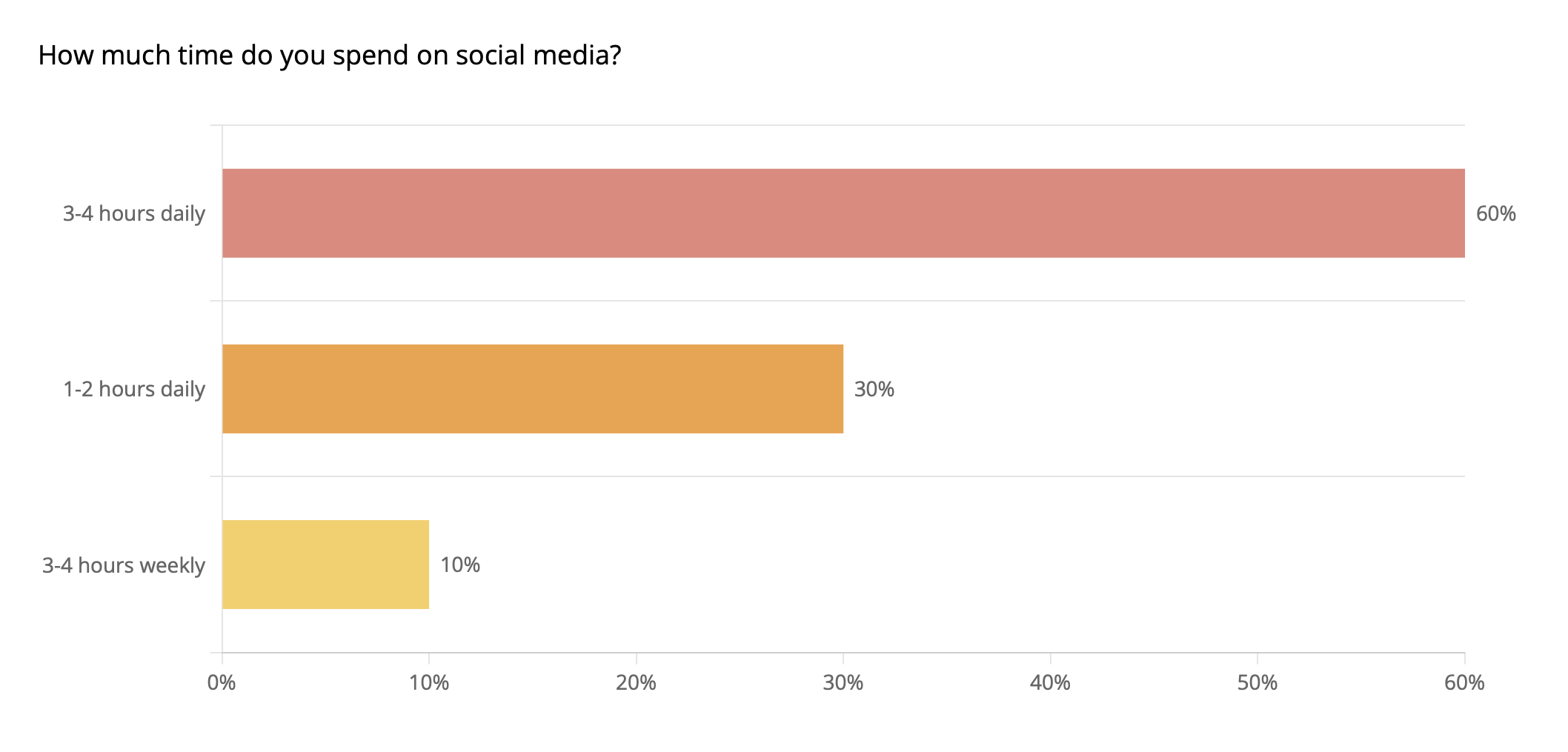
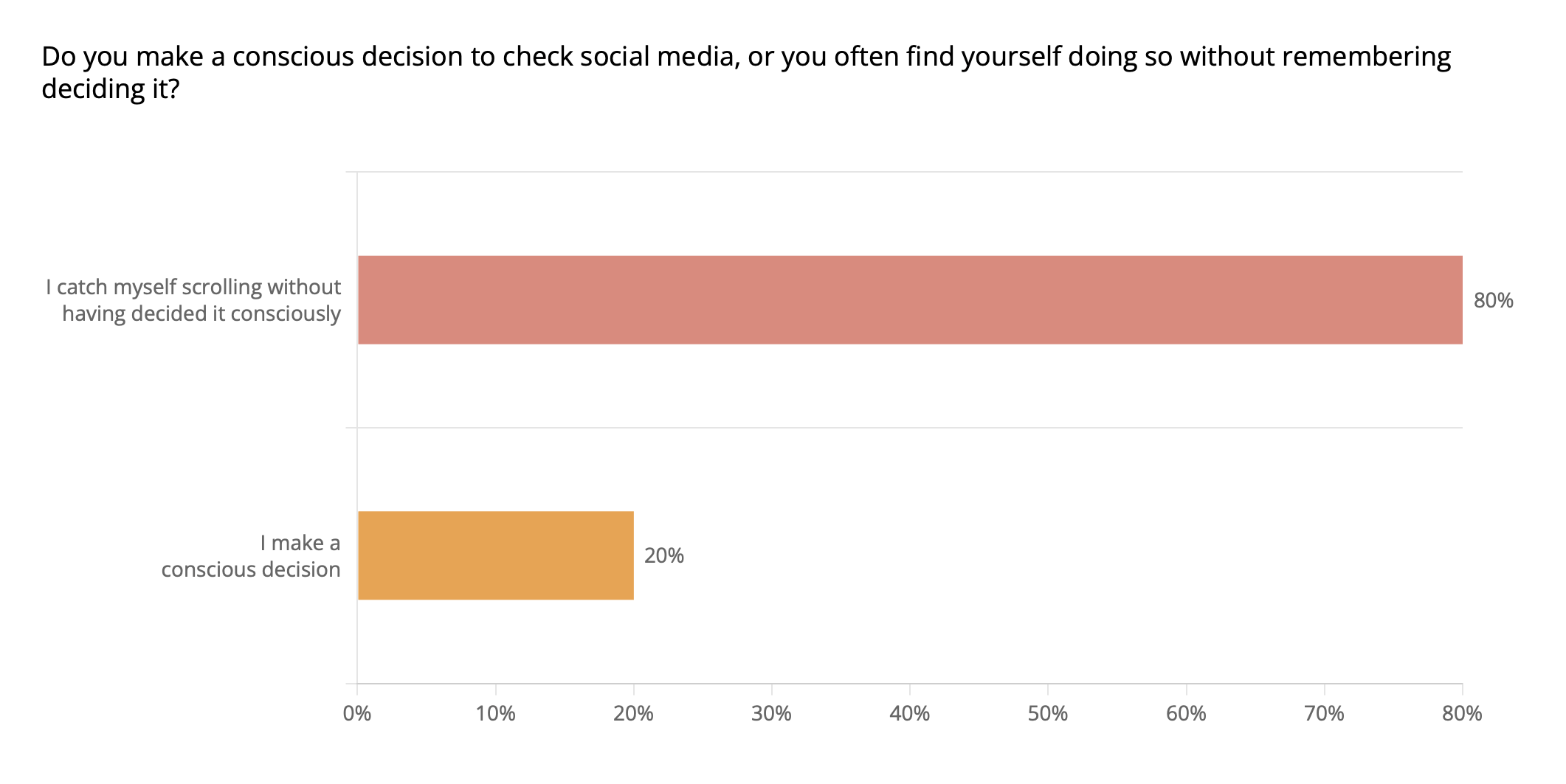

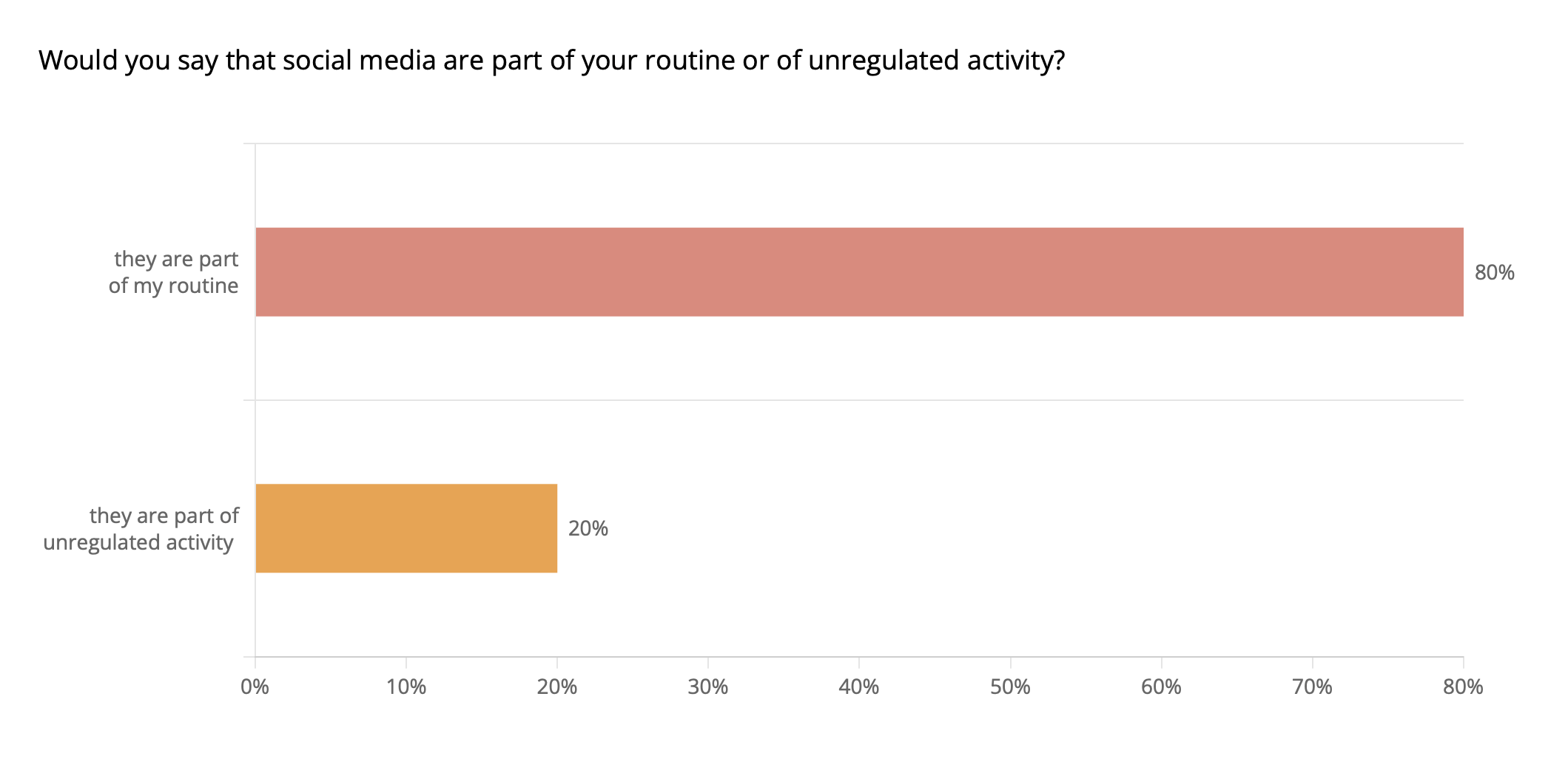
It is clear to me that there is no control whatsoever in terms of consumption. All the participants use them between 1 and 4 hours daily, for an array of interests. That is a lot. As I am fairly acquainted with budgeting, I like seeing the bigger picture of numbers, so let’s have a look at what that means annually. According to the numbers, which by the way never lie, one is sure to be surfing the web for at least 15.1 to 60.6 days per year. Without a doubt, a whole life could fit in such long periods; can you imagine what other activities we could be enjoying instead? Meaningful real life interactions; qualitative personal leisure; much needed downtime; even a short, or a really long holiday. In all cases, this seems far too extreme for creatures that were meant to be sensorial, who need to engage all of their senses to maximise the experience of their lives and ultimately feel fulfilled: no matter how good content is, it will never make us feel truly content.
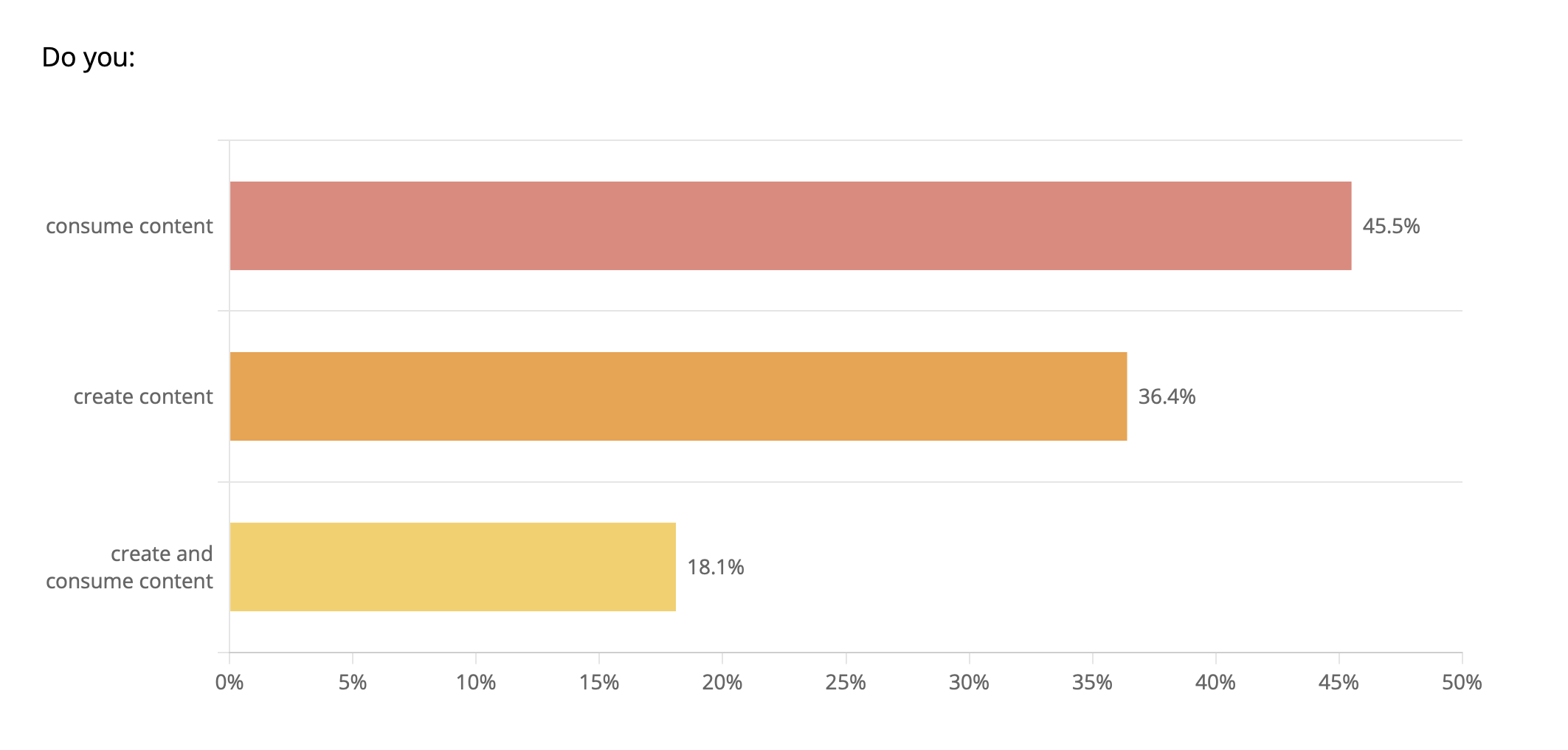
Furthermore, it is evident that content consumption outweighs content creation. Never have I ever expected to see this result, as I was under the impression that people who consume content usually create some as well. Big mistake. A significant number of people peaks into other people’s lives without letting others peak into theirs. What could this possibly mean? Lack of creativity, initiative, or even introversion? Whichever of the above, it creates an uneven relationship with the digital world, and nurtures more passive users. Whatever we participate in, it is important to examine as many aspects as possible; in this case, we had better be consumers as well as creators.
But let’s see how scrolling permeates life’s activities: what happens when we work or spend time with friends? Are we still using our phones?


As it seems, all the participants do. I wonder, is there any sacred space left uncontaminated by the digital craze? If I think about it, I prefer not to be using my phone while I connect with my loved ones, or concentrate to work, and so do you, I guess. So, why do we do it? What does the tendency to resort to scrolling mean? Do we like our job, our friends, our lives, or are we looking for exit windows because all of the above may not be fulfilling enough? Or, have we already grown lethargic and out of spirit for non-digital instances? Whatever the case, real life should always outweigh the digital one. Investing in qualitative work & time with friends should be a conscious decision, which at times requires us to put away our phones and interact with each other.
The last thing I wanted to ask you all via the survey concerned withdrawal: are we stressing when we don’t have access? Do we worry when our battery drains or when we –even worse– are phoneless, if ever? Let’s see what you think:
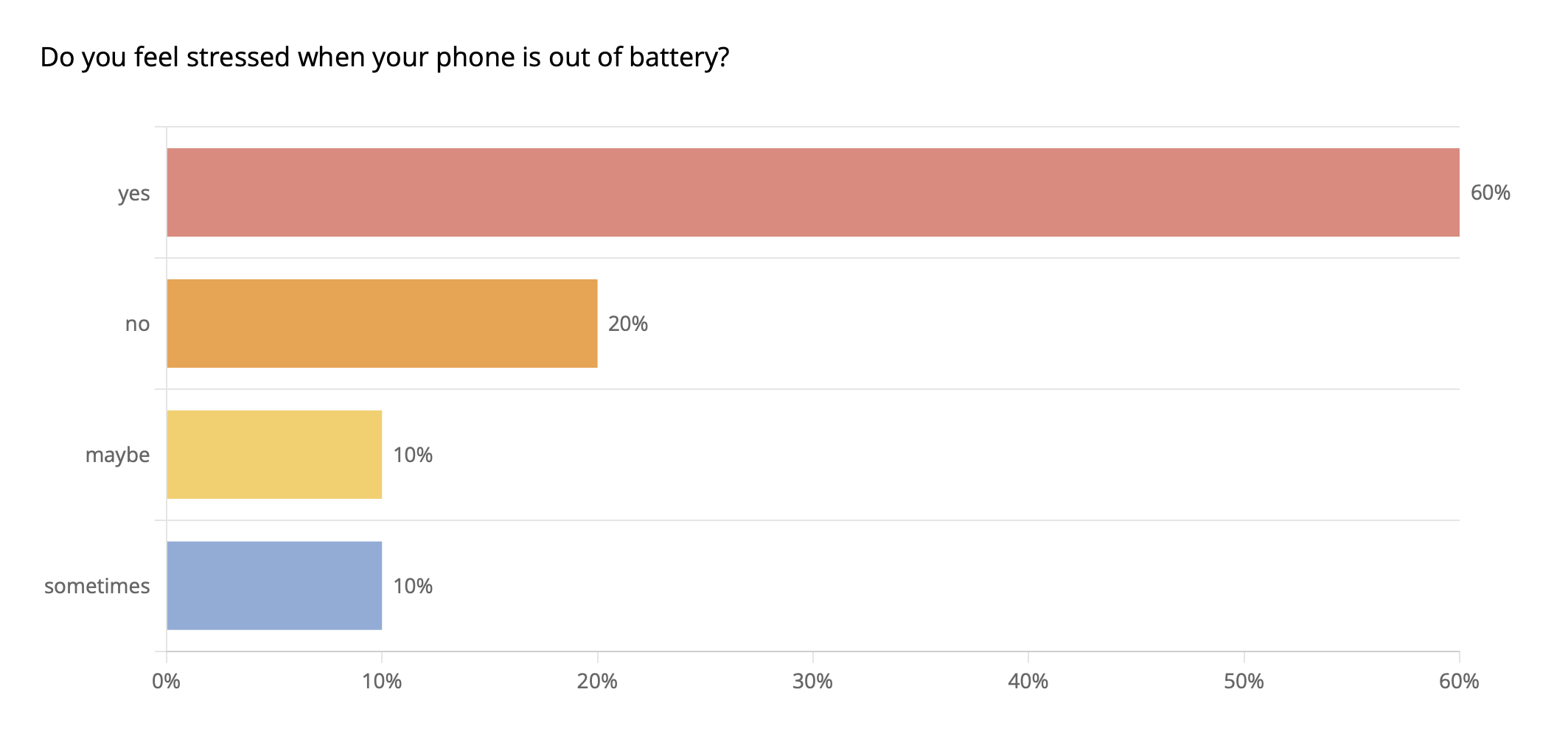
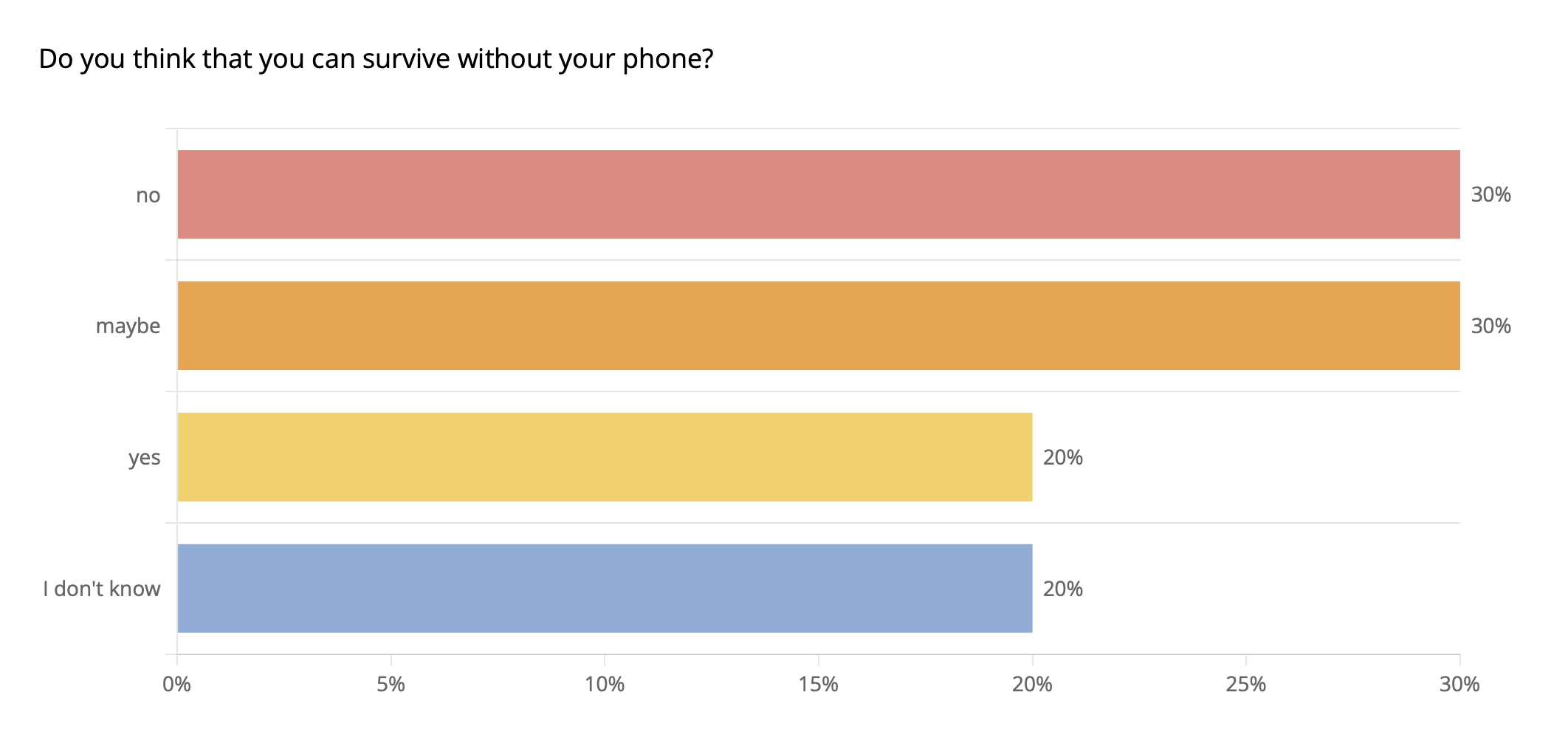
On the bright side, there is at least some diversification here, at least compared to the previous questions. There are still people who can keep their cool even if their phones suffer a coma. Rest assured I am not one of them; I get extremely anxious when my battery dies, mainly for safety reasons, though. During such occasions, I remind myself that people have been surviving for centuries without nokias, blackberries, or iPhones; consequently, us could do the same, too.
So, are we aware of our imbalanced craze, or that raptured attention span? And most importantly, what can we do to restore them? Solutions are always here, as long as we want to make the effort to overcome our problems. Science for once is a big source of antidotes. Utilising information for the research previously mentioned, let’s see if we can find ways to reduce the similarity, repetitiveness, and relatedness of the content we are consuming. Breaking our own patterns takes strategic trial and error, and even if it is a slow, effortful process, it pays up in the long run.
Moreover, let’s stop settling for pixel peanuts and be a little more ambitious about our lives. We are sold for so little with digital; we need to aim higher to live higher. Rest assured that the big, long-lasting thrill can only be brought by complex, real-life interactions, but for this, we must work on our relationship with our surroundings on a deeper level. We have to cultivate meaningful interactions using all of our senses; taste life, smell the grass, feel the air, hear the ocean, see the sunset; take the initiative to get our sixth sense going, not just passively immerse ourselves in a perfectly edited simulation. What about the real deal? Have a lovely Sunday.
liberalvirtue
library
internal literature
conscious information consumption, liberalvirtue
external literature
The Psychology of Your Scrolling Addiction, Harvard Business Review
Why the infinite scroll is so addictive, Ux Collective
My Name Is Dana, and I’m Addicted to Mindless Scrolling, Psychology Today
The Scary Truth About How Zombie Scrolling Impacts Mental Health, Newport Insitute


